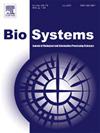生命认知与生物的本质。
IF 2
4区 生物学
Q2 BIOLOGY
引用次数: 0
摘要
关于认知是什么,还没有达成共识。不同的观点以不同的方式将其概念化。同样,对于哪些系统是真正的认知系统,也没有达成一致。这就引出了一个问题:是什么让一个过程或一个系统具有认知性?认知最显著的特征之一就是它是一组过程。归根结底,认知是一系列过程的集合,如感知、记忆、学习、决策、解决问题、目标定向、注意、预测、交流,也许还有情感。关于这些过程的含义,以及哪些系统拥有这些过程,人们还在争论不休。这个问题的一个方面涉及认知和单一过程的概念化水平。为了明确这一问题,我们采用了进化论和自我维持论。从进化的角度来看,我们可以看到所有生物共有的过程及其在特定类群中的衍生过程。无论人们倾向于复杂性光谱的哪一边,简单过程与复杂过程的相似性都不容忽视,而某些复杂过程与其简单版本的差异也不容模糊。最终的认知框架必须对光谱的两边、它们的异同都有意义。在此,我们从进化论的角度讨论所有生物共有的基本要素,以及这些要素是否是理解认知过程的必要和充分条件。根据这些考虑,认知可以扩展到每一种生物。认知是生物体必须与世界互动并掌握世界各个方面的一系列信息和动态过程。从最基本的层面来理解,感知、记忆、学习、解决问题、决策、行动和其他认知过程都是生物功能的基本特征。本文章由计算机程序翻译,如有差异,请以英文原文为准。
Living cognition and the nature of organisms
There is no consensus about what cognition is. Different perspectives conceptualize it in different ways. In the same vein, there is no agreement about which systems are truly cognitive. This begs the question, what makes a process or a system cognitive? One of the most conspicuous features of cognition is that it is a set of processes. Cognition, in the end, is a collection of processes such as perception, memory, learning, decision-making, problem-solving, goal-directedness, attention, anticipation, communication, and maybe emotion. There is a debate about what they mean, and which systems possess these processes. One aspect of this problem concerns the level at which cognition and the single processes are conceptualized. To make this scenario clear, evolutionary and self-maintenance arguments are taken. Given the evolutive landscape, one sees processes shared by all organisms and their derivations in specific taxa. No matter which side of the complexity spectrum one favors, the similarities of the simple processes with the complex ones cannot be ignored, and the differences of some complex processes with their simple versions cannot be blurred. A final cognitive framework must make sense of both sides of the spectrum, their differences and similarities. Here, we discuss from an evolutionary perspective the basic elements shared by all living beings and whether these may be necessary and sufficient for understanding the cognitive process. Following these considerations, cognition can be expanded to every living being. Cognition is the set of informational and dynamic processes an organism must interact with and grasp aspects of its world. Understood at their most basic level, perception, memory, learning, problem-solving, decision-making, action, and other cognitive processes are basic features of biological functioning.
求助全文
通过发布文献求助,成功后即可免费获取论文全文。
去求助
来源期刊

Biosystems
生物-生物学
CiteScore
3.70
自引率
18.80%
发文量
129
审稿时长
34 days
期刊介绍:
BioSystems encourages experimental, computational, and theoretical articles that link biology, evolutionary thinking, and the information processing sciences. The link areas form a circle that encompasses the fundamental nature of biological information processing, computational modeling of complex biological systems, evolutionary models of computation, the application of biological principles to the design of novel computing systems, and the use of biomolecular materials to synthesize artificial systems that capture essential principles of natural biological information processing.
 求助内容:
求助内容: 应助结果提醒方式:
应助结果提醒方式:


